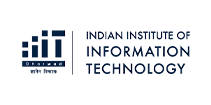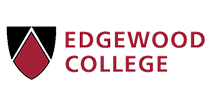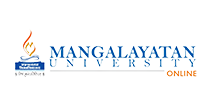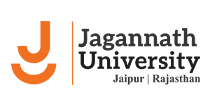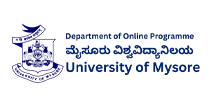PhD Without a Master’s in India: All You Need to Know (2025 Edition)
The path to a PhD has traditionally included the need to obtain a master’s degree, but that pathway is not the only one. Recently, Indian academia has brought brand new opportunities for exceptional students with a research-oriented mindset to gain entry to doctoral programs directly from the bachelor’s level. This is an excellent and progressive shift in the tradition of pursuing a PhD and is representative of the increasing emphasis on getting students engaged with research and excellence in academic studies.If you are a BTech or BSc student with a good track record and passion for a strong inquiry mindset, you may want to consider this as a potential option by thinking about the direct path to a PhD. Pathway structures exist at reputed institutions like IISc, IITs, and IISERs, which allow undergraduate students to progress into research.
In this blog, we will discuss how you can pursue a PhD in India without a master's degree. We will examine eligibility, pathways, leading institutes, and skill sets necessary for being successful on this expedited academic journey.
Overview: Understand the Direct PhD pathway in India
 1250-370 (1).png)
The traditional academic pathway consists of three steps. First, the student will complete an undergraduate degree. Second, the student will complete a master's degree. Finally, the student will enter a PhD program. There are a number of leading Indian institutions that offer alternatives to this traditional pathway. A subset of aspirants can now embark on a PhD program right after undergraduate education. This type of option is referred to as a direct PhD or an integrated PhD program.
Integrated PhD programs have a master's degree component integrated into an overall doctoral research degree. On the other hand, when discussing PhD pathways, particularly technical PhD pathways, a candidate could apply to the PhD program without completing a master's degree, if he/she has academic excellence and research experience. This type of degree is much more efficient in terms of time and allows for a more mature and high-calibre talent to be developed as an early-stage researcher. This process is also in accordance with the global academic traditions.
The majority of these pathways for PhD articulation exist primarily in science, engineering, and technology programs, at a time when there is an ever-increasing focus on undergraduate research.
Pathways to the PhD Without a Master’s in India
If you are looking to pursue a PhD straight after your bachelor’s degree, there are a few well-structured options you can follow that vary in focus, process, and expectations.1. Integrated PhD Degree
An integrated PhD degree is a program that combines master level coursework and PhD research, which is tracked seamlessly while completing the integrated degree, which lasts typically 5 - 6 years. Integrated PhDs are ideal for students with a science background, such as a BSc, and are offered by the most recognized institutions, including IISc, IITs, and IISERs. When a student enters an integrated PhD program, they are enrolled as an integrated PhD student, and upon completion of the lower-level integrated coursework, can engage in independent research as a PhD student.2. Entry to the Direct PhD When you are a BTech/BE
Top engineering institutes, especially the IITs and IISc, provide direct PhD opportunities to outstanding BTech/BE graduates who do not yet hold a master's degree. The direct PhD degree is likely to be research-intensive, with little or no coursework. The best candidates for applying should already have a good research orientation and a strong academic background.3. Direct PhD with Fellowship (example, PMRF)
The Prime Minister's Research Fellowship (PMRF) offers extremely high-performing BTech or integrated MSc candidates from top institutes an opportunity to pursue a direct PhD at participating institutions. Selection will be based on academic performance, research potential, and referee recommendations, and it has one of the most generous fellowship formats.Eligibility to pursue a direct PhD after a Bachelor's
.png)
In the contemporary world, the education industry has taken the lead, allowing students to attain a competitive edge in many ways. An emerging option is the direct PhD degree in philosophy right after graduation. It allows students to develop their academic intelligence and allows them to obtain their highest academic degree exponentially quicker than through the standard bachelor's-PhD degree option.
Most direct or integrated "PhD" programs in India require candidates with a good profile at the undergraduate level, generally in a science, engineering, or related field.
Here is the general eligibility criterion:
- Education Qualification:
- You need to have a degree (BSc, BTech, BE, etc.) from a recognized university. Each program might specify exact streams, which could be Physics, Chemistry, Biology, Engineering, Mathematics, etc.
- Academic Standards:
- The sustained average CGPA is pretty high (often 65 to 70%), or the applicant has consistently first-class marks in their undergraduate and postgraduate degrees.
- Research Experience:
- Research exposure and experience through internships, minor projects, or excellent statements-of-purpose (SOPs) boosts your profile meaningfully.
- Entrance exam:
- Some institutes may require a valid score in a GATE, JAM, or other entrance exams that the institute has defined.
Top Institutes Offering Direct and Integrated PhD Programs
India's research institutes maintain that they develop research talent from undergraduate studies, even if a student in a BTech or BSc degree is enrolled at one of many high-quality institutes. Moreover, students can participate in an integrated or direct PhD program that can provide a solid basis for formal academic conceptualizations and research experience. Because these programs are competitive and designed such that students are prepared with the tools to succeed in a variety of research careers, here is a summary of:.jpg)
1. Indian Institute of Science (IISc), Bangalore
IISc has both Integrated and Direct PhD programs. A science degree student can apply for master's level courses under the integrated PhD program and have applied research training experience. An integrated program is also available for exceptional graduates with a BTech degree, one that captures the essence of direct entry into a PhD with respect to engineering and interdisciplinary studies. Applications are allowed via GATE, JAM, or a scaled aptitude test at the Institute and interviews.
2. Indian Institutes of Technology (IITs)
Various IITs have offered direct PhD degree programs, specifically for BTech/BE graduates, including IIT Bombay, Madras, Kanpur, Delhi, and Hyderabad. Most PhD programs at IITs will be research-based programs from the outset. These will be offered within engineering and science disciplines, as well as newer technology-based disciplines such as AI, data science, material science, etc. Significant criteria for admittance will be prior academic performance and GATE exam (or equivalent testing), as well as their potential for Research or Project work.
3. Indian Institutes of Science Education and Research (IISERs)
IISERs located in India offer Integrated PhD programs to BSc graduates in biology, chemistry, physics, and mathematics, where they complete their coursework along with early exposure to research. IISERs support innovative capacity, access to labs, and continued training and academic development.
4. Jawaharlal Nehru Centre for Advanced Scientific Research (JNCASR)
JNCASR has strong Integrated PhD programs in natural sciences, based on JAM or JEST, and an interview. JNCASR is respected as a source of research, as well as for its collaboration and interactive education environment.
5. Tata Institute of Fundamental Research (TIFR)
TIFR offers integrated PhD and direct PhD programs in physics, chemistry, biology, and computer science, which are all done through their own nationwide entrance test (TIFR GS), followed by an interview. TIFR processes over-complicated admissions and facilitates strong mentoring of young researchers.
Entrance Exams and Admission Process
If you want to gain admission into a direct or integrated PhD program without a master's degree, it will take more than just academic merit; you need to pass a competitive exam and show your readiness to do research through interviews and written statements.1. Common Entrance Exams
Most institutions require one or more of the following scores from a national-level exam:- GATE (Graduate Aptitude Test in Engineering): This is highly accepted as the examination to grant admission to direct PhD programs related to engineering and interdisciplinary sciences.
- JAM (Joint Admission Test for MSc): This is required to apply for Integrated PhD degrees in the pure sciences, which are offered by institutes like IISc and IISERs.
- JEST (Joint Entrance Screening Test): Generally used by programs in physics and theoretical computer science.
- TIFR GS: This is conducted by TIFR for direct admission to its integrated and PhD programs.
- Institute-specific exam: Some institutes conduct their own tests; this is especially true of some special programs, for example, IIT Madras and IISER Pune.
2. The Application Process
.jpg)
- Online Application: Most institutes invite applications for admissions twice a year. The applicant is responsible for uploading their academic transcripts, entrance scores, statement of purpose, and letters of reference.
- Shortlisting: Based on entrance scores, academic record, and research potential.
- Interviews: They are usually research-based or technical. You could be asked to solve problems, present past work, or discuss fields of interest.
- Final Offer: Candidates who successfully complete the interview are offered admission, often accompanied by a stipend or fellowship.
Benefits and Challenges of pursuing a Direct or Integrated PhD after graduation
Starting a PhD program straight from a bachelor’s can be exhilarating but also demanding. Yes, you are getting it done more quickly, but with a greater expectation that you are “research-ready” right from the beginning of the journey. Here are some of the main advantages and challenges:Advantages
- Accelerated Academic Timeline: You will be able to skip the separate master’s program and will save yourself 2–3 years in advancing your academic career and reach your educational goals sooner.
- Research Early: Generally, in a direct and integrated PhD program, you are engaged in research from the first day of the program; you will have more time to explore and engage with your interests.
- Institutional Context: These programs are well-defined and supported by the institution with funding support, such as fellowships that typically start at the beginning, mentoring, and good coursework to support younger researchers.
- Professional Fellowships: Many of these direct and integrated PhD programs are supported by either something like a PMRF fellowship or an Institute scholarship, which ensures you are supported in your research without the stress of securing funding.
Challenges
- Steep Learning Curve: There is an expectation for you to quickly grasp the advanced understanding of the same concepts that most master’s level students will require 2 years of coursework to cover, before they get into their research.
- Pressure for Performance: While the expectations of many institutes where you begin your PhD are high academically and on research outputs, there will soon be an expectation that you will be performing at a similar level, if not a greater level, than master’s students.
- Limited Time to Explore: If you are not sure of your proposal or research direction, it can feel like there is no time to think and step back.
How to strengthen your application?
Direct and integrated PhD programs are competitive, and strong academics alone don't always serve adequately. Institutes want students who not only do well in exams but also demonstrate potential as researchers and clarity of intent as to why they are applying to the direct or integrated route. Here is how you can improve your application:.jpg)
1. Get Research Experience
Engage in a research internship, such as SRFP, IAS, or summer research programs offered by specific institutes. Even if you only have a small research project, putting research experience on your CV shows initiative and is something beneficial that you can discuss in interviews.
2. Write a strong SOP (Statement of Purpose)
You need to show clearly your research focus, why you are applying directly to a PhD and not doing a master’s first, your academic history, and your aspirations. Ensure it resonates with your personal and academic context, is precise, and is relevant to the work the department is conducting.
3. Obtain Quality References
Seek letters of reference from professors (or others) who can discuss your research strengths, academic abilities, and intellectual curiosity. A strong letter of recommendation (LOR) is often the deciding factor in competitive selections.
4. Prepare for the interview
Ensure you know the core concepts from undergraduate studies and be prepared to talk about your research interests or prior work. Depending on the program you apply for, many interviews will involve problem-solving or liaising with current scientific trends.
Conclusion
Starting a PhD directly after graduation is an exhilarating opportunity to gain an academic and research career in the fastest time possible. This path is not for everyone; it requires a strong academic background, the ability to be instilled with a sense of curiosity about research, and a deliberate focus on your potential as a researcher.However, if you’re someone who is enthusiastic about socially shaped research, it could be an accelerated way to get into high-end academic work, with supporting institutions and funding in place.
Compared to the past, many of India's finest institutes are putting even more emphasis and financial support behind these programs, giving even more opportunities for those motivated enough to jump straight into research. If you have the motivation to do it, it could definitely be a launching pad for a successful career in research as well as in academia.
Frequently Asked Questions (FAQs)
1. Can I apply for a PhD directly after a BTech or BSc?
Yes, a number of institutions such as IISc, IITs, and IISERs offer direct PhD entry to exceptional graduates from BTech/BSc.
2. What are the main entrance exams for direct PhD programs?
Commonly used exams are GATE, JAM, JEST, and also institution-specific exams like TIFR GS.
3. Do you need a master’s degree to be admitted to a PhD program in India?
No, there are now many institutions that offer direct or integrated PhD programs. So, you will not need a separate master's degree.
4. How to increase chances for admission?
Have research experience, write a good SOP, and have a good set of recommendations. Good preparations for the entrance exam and interview are also key.
5. How long are direct PhD programs?
A direct PhD typically lasts 5 to 6 years, but it can depend on the institution and discipline.
Trending Posts
-
IGNOU Distance & Online Learning Programs 2025: Everything You Need to Know
-
How to Convert Million to Crore? A Simple Calculator Guide
-
NMIMS vs Manipal Online MBA: Which One is Best for You?
-
High-Paying Government Jobs After B.Com. You Should Know About
-
UGC-Approved Online and Distance Psychology Programs in India: Top Colleges Listed
-
PhD Without a Master’s in India: All You Need to Know (2025 Edition)
-
Best Psychology Courses in India: UG, PG, Diplomas & More
-
Understanding NIRF Rankings: Significance, Impact, and Future Scope
-
Mastering Online Exams in India: A Comprehensive Guide to Procedures, Benefits, and Preparation
-
Top 5 Online Universities in India for Online MBA in Healthcare Management
-
Confused About GPA to Percentage? Here’s How to Convert It!
-
How Long is a PhD? Duration Breakdown for India and Abroad
-
Do You Really Need UGC-NET for a Ph.D in 2025? Let’s Break It Down
-
Top 5 Online MCA Colleges in India in 2025
-
SGPA to Percentage Calculator: The Easy Way to Convert Your Grades






















































